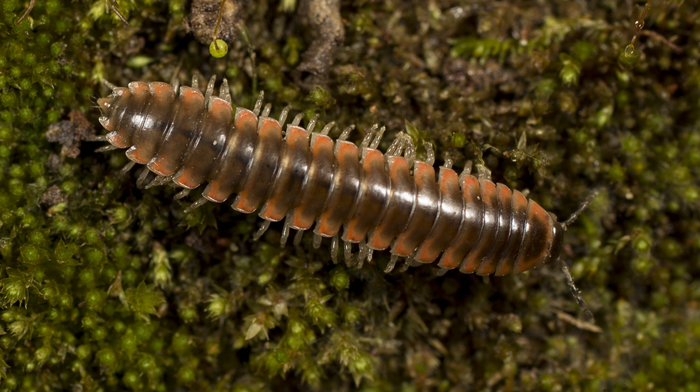Scientists discover 17 new millipede species, one named after Taylor Swift
Nannaria swiftae, named after singer, has only been found in Tennessee, scientists say

Your support helps us to tell the story
From reproductive rights to climate change to Big Tech, The Independent is on the ground when the story is developing. Whether it's investigating the financials of Elon Musk's pro-Trump PAC or producing our latest documentary, 'The A Word', which shines a light on the American women fighting for reproductive rights, we know how important it is to parse out the facts from the messaging.
At such a critical moment in US history, we need reporters on the ground. Your donation allows us to keep sending journalists to speak to both sides of the story.
The Independent is trusted by Americans across the entire political spectrum. And unlike many other quality news outlets, we choose not to lock Americans out of our reporting and analysis with paywalls. We believe quality journalism should be available to everyone, paid for by those who can afford it.
Your support makes all the difference.Entomologists have discovered 17 new species of millipedes living in the Appalachian Mountains of the US, and named one of them after popular US singer and songwriter Taylor Swift.
The millipedes, described in a study published in the journal ZooKeys on Friday, belong to the genus Nannaria – an assemblage of small-bodied millipedes distributed in eastern North America.
These millipedes are typically chestnut brown to black with a bimaculate pattern of orange to red, or white spots and may rarely also have stripes, according to scientists from the Virginia Polytechnic Institute and State University (Virginia Tech) in the US.
Researchers say the little-known invertebrates have a valuable role as decomposers, living on the forest floor, feeding on decaying leaves and other plant matter, and helping release nutrients into the ecosystem.
The millipedes are somewhat tricky to catch since they tend to remain buried in the soil, “sometimes staying completely beneath the surface”, according to scientists.
Due to their presence in museum collections, entomologists long suspected that Nannaria millipedes included many new species.
However, these specimens went undescribed for decades.
As part of a multi-year project to collect new specimens of the millipedes throughout the eastern US, scientists, including Derek Hennen from Virginia Tech traveled to 17 states, checking under leaf litter, rocks, and logs to find species so that they could sequence their DNA and scientifically describe them.
Assessing over 1,800 specimens collected during their field study or taken from university and museum collections, researchers described 17 new species.
These include Nannaria marianae – named after Dr Hennen’s wife – and Nannaria swiftae, named after the 11-time Grammy-winning singer and songwriter Taylor Swift.
“Nannaria swiftae is only known from Tennessee and has been collected in the following counties: Cumberland, Monroe, and Van Buren,” scientists wrote in the study.
The species, according to the scientists is named “in honor of the artist Taylor Swift, in recognition of her talent as a songwriter and performer and in appreciation of the enjoyment her music has brought DAH [Derek Hennen].”
“This species has been collected in mesic forests with hemlock, maple, oak, tuliptree, witch hazel, and pine, at elevations ranging from 481m (1,578ft) to 1,539m (5049ft),” they said.
Entomologists expect to discover more new species of millipedes in the southern Appalachian Mountains.
Subscribe to Independent Premium to bookmark this article
Want to bookmark your favourite articles and stories to read or reference later? Start your Independent Premium subscription today.
Join our commenting forum
Join thought-provoking conversations, follow other Independent readers and see their replies
Comments